Draft Challenges, Luck, and You – How to win more games
Hey all, with the release of the night witch challenge, I want to talk about some important ideas that can help improve your win percentage in Clash Royale, both in draft challenges and overall. I’m going to talk about strategy for draft challenges, with a focus on luck and randomness in the game, and why you should embrace them instead of cursing them out and tilting. Sound good? Good.
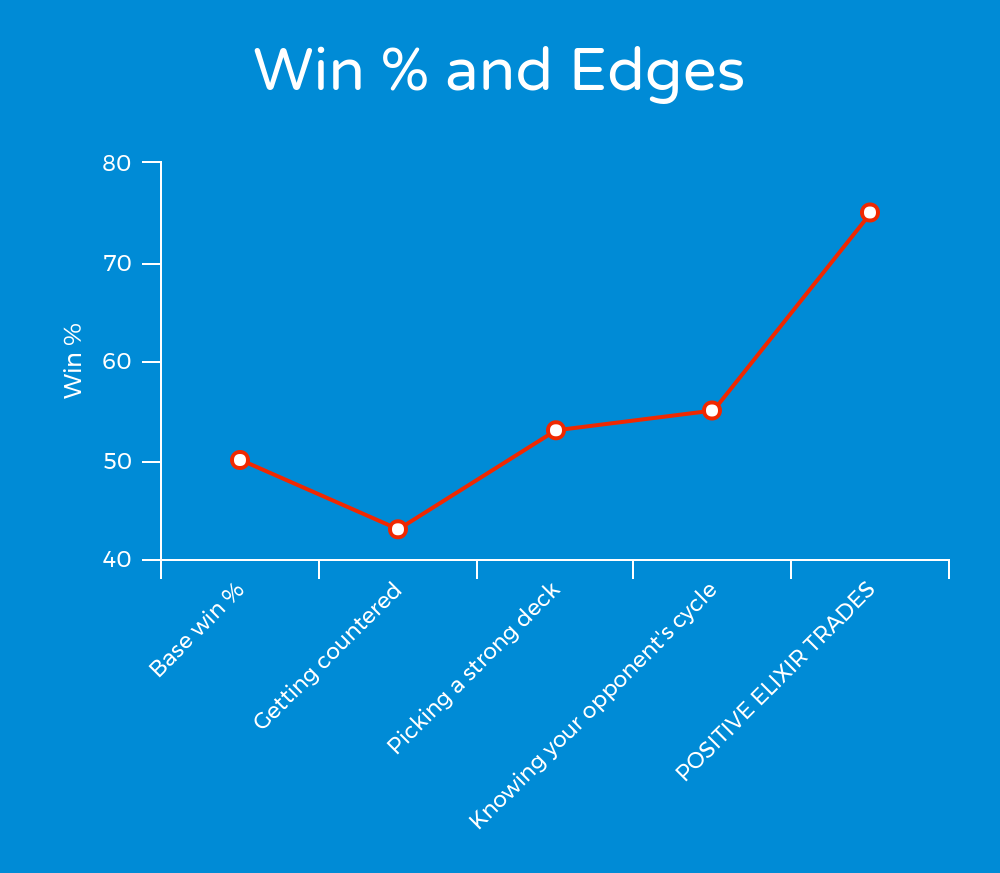 When you’re playing against spell bait and you can save your log for their next barrel by effectively countering their other troops, you’re stopping chip damage, reducing your chance to lose the game – you’ve gained an edge. When you choose a deck that’s well suited for the current meta, you’re going to hit matchups you can win more often – you’ve gained an edge.
When you’re playing against spell bait and you can save your log for their next barrel by effectively countering their other troops, you’re stopping chip damage, reducing your chance to lose the game – you’ve gained an edge. When you choose a deck that’s well suited for the current meta, you’re going to hit matchups you can win more often – you’ve gained an edge.



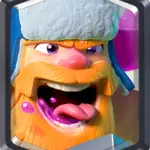 Ok guys, calm down, I’m getting there. Put your pitchforks (or spears, or swords) away. So what do edges have to do with draft and luck?
Ok guys, calm down, I’m getting there. Put your pitchforks (or spears, or swords) away. So what do edges have to do with draft and luck?
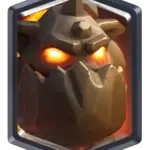

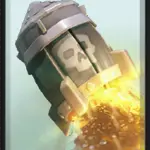
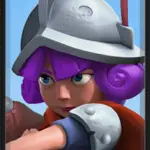 Simply put: you need a way to win the game. When you get thrown into the match in 30 seconds, you need to figure out how you’re going to take down 1 or more of your opponent’s towers. Some win cons are better than others, but you can still win matches where your opponent has a better win con than you – as long as you have SOME WAY to win the game. How are you going to do that?
Simply put: you need a way to win the game. When you get thrown into the match in 30 seconds, you need to figure out how you’re going to take down 1 or more of your opponent’s towers. Some win cons are better than others, but you can still win matches where your opponent has a better win con than you – as long as you have SOME WAY to win the game. How are you going to do that?
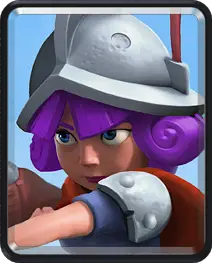 This humble musketeer CAN kill towers. Not only that, she’s a versatile defense that can put you up on elixir before she does it. Do not underestimate her (or cards like her). Defend your opponents pushes well, use your elixir wisely, and go win that match! 40% means you’re still winning this match 2 out of 5 times, and winning games where your opponent had an advantage is KEY to 12-x’ing that next draft challenge.
What about next match, when you get the win con and your opponent doesn’t? You’re 70% to win off the bat. Should you get lazy because you “totally have it”? No, don’t underestimate your opponent, play smart and you can turn 70% into 80%. Play dumb and you can turn a match that was basically a lock into a 50/50 coin flip.
This humble musketeer CAN kill towers. Not only that, she’s a versatile defense that can put you up on elixir before she does it. Do not underestimate her (or cards like her). Defend your opponents pushes well, use your elixir wisely, and go win that match! 40% means you’re still winning this match 2 out of 5 times, and winning games where your opponent had an advantage is KEY to 12-x’ing that next draft challenge.
What about next match, when you get the win con and your opponent doesn’t? You’re 70% to win off the bat. Should you get lazy because you “totally have it”? No, don’t underestimate your opponent, play smart and you can turn 70% into 80%. Play dumb and you can turn a match that was basically a lock into a 50/50 coin flip.

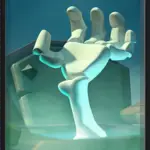
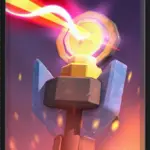
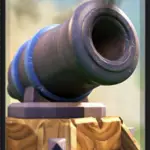 You’ll use them pretty much like any other match, so just know that they’re valuable, and that they’ll usually have a big impact on the game. When picking the rest of your deck, if you’ve got a building you’ll be able to be a little more free with your picks (inferno tower can act as your tank killer, cannon is a great cheap answer for ground troops, inferno can kill minion hordes in a pinch).
You’ll use them pretty much like any other match, so just know that they’re valuable, and that they’ll usually have a big impact on the game. When picking the rest of your deck, if you’ve got a building you’ll be able to be a little more free with your picks (inferno tower can act as your tank killer, cannon is a great cheap answer for ground troops, inferno can kill minion hordes in a pinch).
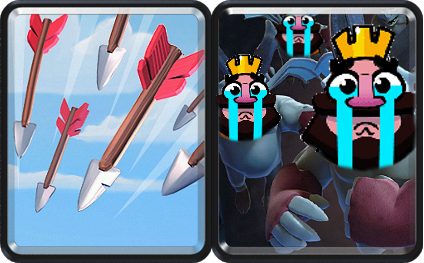
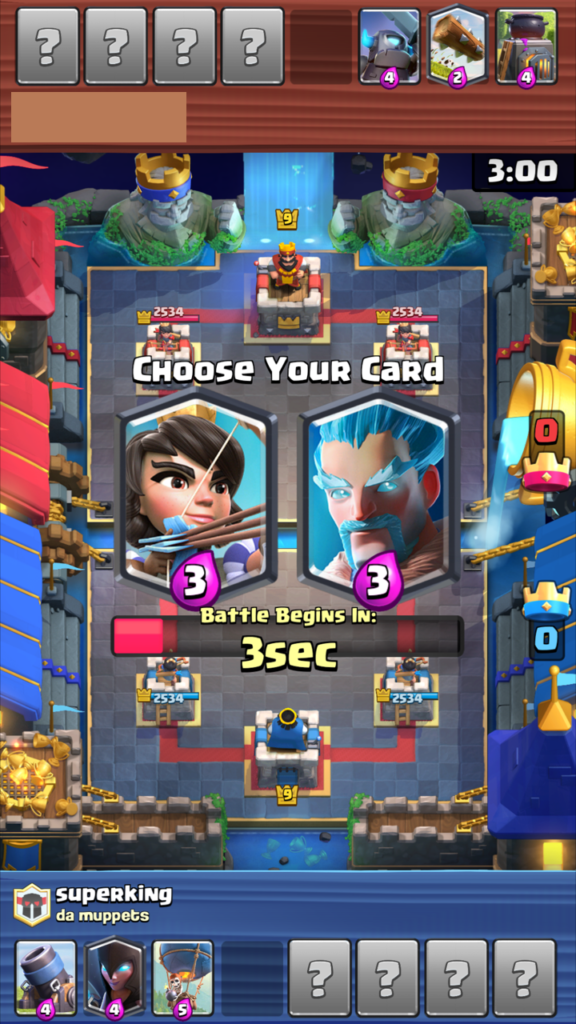 I want you to look at this picture and and figure out what you would pick before reading on.
I want you to look at this picture and and figure out what you would pick before reading on.
Princess is a super versatile and powerful card. I’d argue it’s better than ice wizard in a vacuum. It’s even good against opponent’s furnace, and would clear swarms really well. Now look at the cards we’ve picked so far: mortar, night witch, and balloon. Ice wizard is going to counter our balloon really hard, so it’s probably a good choice to deny them that counter to our best win con. Now look again, our opponent already has log. If we took princess, they’d have an amazing counter for her. By picking ice wizard we’ve denied them a counter to our balloon AND denied them an easy counter on the princess we would’ve picked otherwise. Think about what you’ve given your opponent and what you already have before you make every choice.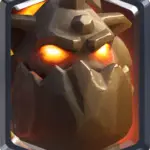


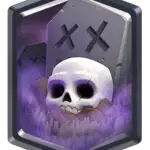
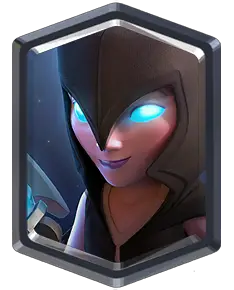 When there’s a new card, it’ll usually be in every draft, meaning there’s a 50% chance you’ll see it while drafting (or 50% chance your opponent sees it). If you see it, and you’re not sure whether to choose it, here’s a list of pros and cons that can help you decide.
Pros:
When there’s a new card, it’ll usually be in every draft, meaning there’s a 50% chance you’ll see it while drafting (or 50% chance your opponent sees it). If you see it, and you’re not sure whether to choose it, here’s a list of pros and cons that can help you decide.
Pros:

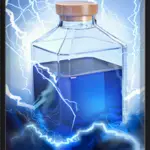 Once upon a time I was merrily drafting a deck in the hog rider draft challenge. I had given my opponent lightning in an earlier pick, and then saw a 4th pick 3 musketeers – my first chance at a decent win con (if you’ve been reading, you know win cons are good to have). If I didn’t choose 3m, I couldn’t guarantee I’d have a single way to win the game, so I went ahead and picked it.
It turns out, 3m was my only decent win con, as expected. I knew that there was only really one out to win this game – defend extremely well, wait for an extreme elixir advantage AND for his lightning to be out of rotation, and drop the 3m for one giant push that takes a tower immediately.
Once upon a time I was merrily drafting a deck in the hog rider draft challenge. I had given my opponent lightning in an earlier pick, and then saw a 4th pick 3 musketeers – my first chance at a decent win con (if you’ve been reading, you know win cons are good to have). If I didn’t choose 3m, I couldn’t guarantee I’d have a single way to win the game, so I went ahead and picked it.
It turns out, 3m was my only decent win con, as expected. I knew that there was only really one out to win this game – defend extremely well, wait for an extreme elixir advantage AND for his lightning to be out of rotation, and drop the 3m for one giant push that takes a tower immediately.
 Pictured above: the villain of our story. And so it went, I defended push after push, as my opponent had a very solid win con in hog rider. I kept his chip to a minimum, and I made small chipping counter-pushes of my own. After building a rock solid elixir advantage in double elixir overtime, he made the fatal mistake I was waiting for – using his lightning to shut down my counter-push.
As I hit 9 elixir, I dropped my 3m at the bridge on the side he hadn’t been chipping. He tried for a counterpush with hog. I was able to defend well enough (keeping my tower at 1/2 life) while the 3 musketeers steamrolled his tower (with lightning an eternity away in my opponent’s rotation).
This is an example of playing to your outs. My deck was severely disadvantaged against my opponent’s, but by hiding information and waiting for my easily-countered win con to be uncounterable, I was able to steal a win. If I had just played 3 musketeers early and often, it may have gotten some chip in or a decent push, but not enough to take a tower, and my opponent would have slowly built up a massive elixir advantage, using lightning, and I would have lost. It wouldn’t have made a very good story.
Pictured above: the villain of our story. And so it went, I defended push after push, as my opponent had a very solid win con in hog rider. I kept his chip to a minimum, and I made small chipping counter-pushes of my own. After building a rock solid elixir advantage in double elixir overtime, he made the fatal mistake I was waiting for – using his lightning to shut down my counter-push.
As I hit 9 elixir, I dropped my 3m at the bridge on the side he hadn’t been chipping. He tried for a counterpush with hog. I was able to defend well enough (keeping my tower at 1/2 life) while the 3 musketeers steamrolled his tower (with lightning an eternity away in my opponent’s rotation).
This is an example of playing to your outs. My deck was severely disadvantaged against my opponent’s, but by hiding information and waiting for my easily-countered win con to be uncounterable, I was able to steal a win. If I had just played 3 musketeers early and often, it may have gotten some chip in or a decent push, but not enough to take a tower, and my opponent would have slowly built up a massive elixir advantage, using lightning, and I would have lost. It wouldn’t have made a very good story.
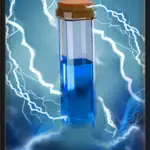

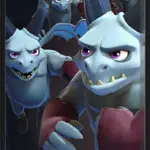
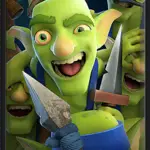
Gaining and Losing Edges
Edges are a really important concept to improving your skill at a game like Clash Royale. An edge is a small advantage that you gain or lose, affecting your overall win percentage. It’s not about game winning plays, it’s about doing all the things that will improve your chance to win (or not lose). When you’re playing against spell bait and you can save your log for their next barrel by effectively countering their other troops, you’re stopping chip damage, reducing your chance to lose the game – you’ve gained an edge. When you choose a deck that’s well suited for the current meta, you’re going to hit matchups you can win more often – you’ve gained an edge.
When you’re playing against spell bait and you can save your log for their next barrel by effectively countering their other troops, you’re stopping chip damage, reducing your chance to lose the game – you’ve gained an edge. When you choose a deck that’s well suited for the current meta, you’re going to hit matchups you can win more often – you’ve gained an edge.
When you pick a good deck for the meta, you’ll still face bad matchups and lose games, but your OVERALL WIN % will go upSometimes the right call is to pick a polarizing deck – one that has extremely good matchups against something you expect to see often, and extremely bad matchups that are fewer and farther between. When you face those bad matchups, the deck choice will feel awful, but if your overall win % is higher, losing those matchups is worth it.
HEY! You said this was about draft challenges and luck!



 Ok guys, calm down, I’m getting there. Put your pitchforks (or spears, or swords) away. So what do edges have to do with draft and luck?
Ok guys, calm down, I’m getting there. Put your pitchforks (or spears, or swords) away. So what do edges have to do with draft and luck?
Luck is an inherent part of the game – find ways to control itA lot of people think draft challenges are all luck – they’re not. Sometimes luck will deal you a bad hand or your opponent will have a deck that’s favored against yours (oh by the way, it’s the same thing in ladder). There’s still a ton of things you can do to reduce the impact of your bad luck, and increase the impact of your good luck. It’s all about gaining edges where you can.
Drafting Your Deck (and your opponent’s)
So you fire up your first draft match and you see two cards, which do you pick? The one on the left or the right? What? You need more information than that to make a good choice? Ah, right, because each pick you make will build your deck AND your opponent’s, and is a chance to gain an edge. Each choice you make will affect your chance to win the game you’re about to play. So let’s talk about the basics of a deck that you’d like to draft.Win Con(s)



 Simply put: you need a way to win the game. When you get thrown into the match in 30 seconds, you need to figure out how you’re going to take down 1 or more of your opponent’s towers. Some win cons are better than others, but you can still win matches where your opponent has a better win con than you – as long as you have SOME WAY to win the game. How are you going to do that?
Simply put: you need a way to win the game. When you get thrown into the match in 30 seconds, you need to figure out how you’re going to take down 1 or more of your opponent’s towers. Some win cons are better than others, but you can still win matches where your opponent has a better win con than you – as long as you have SOME WAY to win the game. How are you going to do that?
- A classic beatdown push (tank + support)
- Chipping in with hog riders
- Cycling to rockets and gaining value hitting troops and towers
- Decent troops that can defend and counterpush when played well
No.No I did not mean to put 3 musketeers. Sometimes you don’t get a chance to pick an obvious win con (like golems, giants, balloons, etc.). Sometimes you just never see one and your opponent doesn’t give you one either. If they got a good win con, that’s bad luck for you. You may be 30% to win the game before it even starts. So what are you going to do? Cry about it, tilt, and drop your win chance to 20%? Or defend everything perfectly, play your best, and improve your chance of winning this match to 40%?
 This humble musketeer CAN kill towers. Not only that, she’s a versatile defense that can put you up on elixir before she does it. Do not underestimate her (or cards like her). Defend your opponents pushes well, use your elixir wisely, and go win that match! 40% means you’re still winning this match 2 out of 5 times, and winning games where your opponent had an advantage is KEY to 12-x’ing that next draft challenge.
What about next match, when you get the win con and your opponent doesn’t? You’re 70% to win off the bat. Should you get lazy because you “totally have it”? No, don’t underestimate your opponent, play smart and you can turn 70% into 80%. Play dumb and you can turn a match that was basically a lock into a 50/50 coin flip.
This humble musketeer CAN kill towers. Not only that, she’s a versatile defense that can put you up on elixir before she does it. Do not underestimate her (or cards like her). Defend your opponents pushes well, use your elixir wisely, and go win that match! 40% means you’re still winning this match 2 out of 5 times, and winning games where your opponent had an advantage is KEY to 12-x’ing that next draft challenge.
What about next match, when you get the win con and your opponent doesn’t? You’re 70% to win off the bat. Should you get lazy because you “totally have it”? No, don’t underestimate your opponent, play smart and you can turn 70% into 80%. Play dumb and you can turn a match that was basically a lock into a 50/50 coin flip.
Buildings
Some buildings are better than others, but in general it’s really good to have a single building in your deck (2 is pushing it, and 3 is generally going to be bad). Buildings are great on defense and give you a way to pull troops that only target buildings (like hog rider, golem, etc.).


 You’ll use them pretty much like any other match, so just know that they’re valuable, and that they’ll usually have a big impact on the game. When picking the rest of your deck, if you’ve got a building you’ll be able to be a little more free with your picks (inferno tower can act as your tank killer, cannon is a great cheap answer for ground troops, inferno can kill minion hordes in a pinch).
You’ll use them pretty much like any other match, so just know that they’re valuable, and that they’ll usually have a big impact on the game. When picking the rest of your deck, if you’ve got a building you’ll be able to be a little more free with your picks (inferno tower can act as your tank killer, cannon is a great cheap answer for ground troops, inferno can kill minion hordes in a pinch).
Counters
Ok hold on, I’m getting ahead of myself. Picking cards for a specific reason? To kill certain kinds of troops? Why would you do that when you have no idea what’s in your opponent’s deck?Some card types your opponent may pick will demand counters – try to have a toolbox of counters for common problem cardsYou’ll almost always have a way to interact with standard ground troops, but a well rounded deck should try to have ways to deal with other problematic cards that your opponent may have chosen. Common trouble card types you should expect are –
- Air units (and air swarms) – counter with ranged units and splash units that can target air, or with spells like zap, arrows, or fireball
- Tanks – counter with high damage cards like musketeer, pekka (and mini pekka), and inferno tower – use that building you picked up to draw them away from your towers
- Supports – counter high damage supports by dropping a mini tank (like knight or valkyrie) in their back line, or with heavy spells like fireball, lightning, or rocket
- Swarms – counter swarms (like gob gang, skarmy, etc.) with cheap spells or splash troops

Denying Counters
Equally as important is denying your opponent counters to your own deck. If you can get a hold of cards that are hard to counter (see list above), then you will want to try to deny your opponent having good answers to them. Consider this example: I want you to look at this picture and and figure out what you would pick before reading on.
I want you to look at this picture and and figure out what you would pick before reading on.
Princess is a super versatile and powerful card. I’d argue it’s better than ice wizard in a vacuum. It’s even good against opponent’s furnace, and would clear swarms really well. Now look at the cards we’ve picked so far: mortar, night witch, and balloon. Ice wizard is going to counter our balloon really hard, so it’s probably a good choice to deny them that counter to our best win con. Now look again, our opponent already has log. If we took princess, they’d have an amazing counter for her. By picking ice wizard we’ve denied them a counter to our balloon AND denied them an easy counter on the princess we would’ve picked otherwise. Think about what you’ve given your opponent and what you already have before you make every choice.
While drafting it’s just as important to weaken your opponent’s deck as it is to strengthen your own
Combos
Some card combinations are really good and hard to counter effectively (especially since your opponent has got a draft deck too).



If you pick up a lava hound early and see a balloon 4th pick, it’s usually a really easy choice to grab it. Likewise, if you’ve already given your opponent a giant, you probably don’t want to give them a graveyard, right?
Be on the lookout for combos that you may be able to put together (or deny for your opponent). These will be rare, but if you spot them and make the right choices, it can greatly increase your chance of winning the match.
Good stuff
Sometimes you’ll have a pick that doesn’t fit the above categories. No building to choose from, no win con, nothing that’d make a big difference in countering something (for either side). Double check and make sure you’re right about that, and just pick the card you think is better.Spells and Spell Flooding
Spells are great. Heavy spells can act as win cons, cheap spells are great versatile answers, and medium spells are the perfect answer to support troops. These things are all true, but be careful of the trap known as spell flooding. If you end up with 4+ spells and a few mediocre troops, you’re going to have a hard time winning the match. To avoid this trap, try to only pick one spell during your part of the draft, and a 2nd only if it’s a perfect counter to a card you’ve already given to your opponent.Bonus Section: SHINY NEW CARD
Oftentimes a draft challenge will have a shiny new card. Sound familiar? When there’s a new card, it’ll usually be in every draft, meaning there’s a 50% chance you’ll see it while drafting (or 50% chance your opponent sees it). If you see it, and you’re not sure whether to choose it, here’s a list of pros and cons that can help you decide.
Pros:
When there’s a new card, it’ll usually be in every draft, meaning there’s a 50% chance you’ll see it while drafting (or 50% chance your opponent sees it). If you see it, and you’re not sure whether to choose it, here’s a list of pros and cons that can help you decide.
Pros:
- New card may be imbalanced – overpowered! – since SUPERCELL hasn’t gotten great data on it yet
- Your opponents may not know how to counter it effectively yet
- Your opponents may not even know how the card works (WTF this thing spawns bats on death too?!? Wow! Wow! Oops!)
- New card may be imbalanced – underpowered 🙁
- You may not know how to effectively use it yet
- Your opponent knows it’s in the draft and may pick a counter to it to hedge their bets
Playing the Game
So you put together a well rounded 4 cards, you even got a win con and a building. You’re doing great and clearly you know everything about draft. Then you play the game, get stomped, and scream “DRAFT IS NO SKILL ALL LUCK”, right? Or do you think about what went wrong and get better… your call.Hidden Information
Draft challenges are wild because the decks are different every time. In a ladder game, you know 8 of your cards, and by the time your opponent has dropped 2, you may have figured out their whole deck. You know your deck’s plan to counter it, and you go about your business winning the game. In draft, you know 4 of your cards, 4 of your opponent’s. When the game starts, you’ll see 5 cards (4 in your hand, and the one that’s next up). That means even as the game starts, you may not know your whole deck. There may be fully THREE cards you don’t know. As for your opponent, he’s got 4 cards you should know (you were paying attention right?) and 4 you won’t know until you see them.Your Hidden Cards OR The Story of the Lightning and the Three Musketeers
Some cards lend themselves really well to a surprise attack. If you can build up an elixir advantage then drop a hog rider when they’re unprepared, he’s going to do massive damage. When you have a win con that can be devastating as a surprise (one you picked, so your opponent doesn’t know), it can be advantageous to hold onto it until you understand your opponent’s deck. Story time.
 Once upon a time I was merrily drafting a deck in the hog rider draft challenge. I had given my opponent lightning in an earlier pick, and then saw a 4th pick 3 musketeers – my first chance at a decent win con (if you’ve been reading, you know win cons are good to have). If I didn’t choose 3m, I couldn’t guarantee I’d have a single way to win the game, so I went ahead and picked it.
It turns out, 3m was my only decent win con, as expected. I knew that there was only really one out to win this game – defend extremely well, wait for an extreme elixir advantage AND for his lightning to be out of rotation, and drop the 3m for one giant push that takes a tower immediately.
Once upon a time I was merrily drafting a deck in the hog rider draft challenge. I had given my opponent lightning in an earlier pick, and then saw a 4th pick 3 musketeers – my first chance at a decent win con (if you’ve been reading, you know win cons are good to have). If I didn’t choose 3m, I couldn’t guarantee I’d have a single way to win the game, so I went ahead and picked it.
It turns out, 3m was my only decent win con, as expected. I knew that there was only really one out to win this game – defend extremely well, wait for an extreme elixir advantage AND for his lightning to be out of rotation, and drop the 3m for one giant push that takes a tower immediately.
 Pictured above: the villain of our story. And so it went, I defended push after push, as my opponent had a very solid win con in hog rider. I kept his chip to a minimum, and I made small chipping counter-pushes of my own. After building a rock solid elixir advantage in double elixir overtime, he made the fatal mistake I was waiting for – using his lightning to shut down my counter-push.
As I hit 9 elixir, I dropped my 3m at the bridge on the side he hadn’t been chipping. He tried for a counterpush with hog. I was able to defend well enough (keeping my tower at 1/2 life) while the 3 musketeers steamrolled his tower (with lightning an eternity away in my opponent’s rotation).
This is an example of playing to your outs. My deck was severely disadvantaged against my opponent’s, but by hiding information and waiting for my easily-countered win con to be uncounterable, I was able to steal a win. If I had just played 3 musketeers early and often, it may have gotten some chip in or a decent push, but not enough to take a tower, and my opponent would have slowly built up a massive elixir advantage, using lightning, and I would have lost. It wouldn’t have made a very good story.
Pictured above: the villain of our story. And so it went, I defended push after push, as my opponent had a very solid win con in hog rider. I kept his chip to a minimum, and I made small chipping counter-pushes of my own. After building a rock solid elixir advantage in double elixir overtime, he made the fatal mistake I was waiting for – using his lightning to shut down my counter-push.
As I hit 9 elixir, I dropped my 3m at the bridge on the side he hadn’t been chipping. He tried for a counterpush with hog. I was able to defend well enough (keeping my tower at 1/2 life) while the 3 musketeers steamrolled his tower (with lightning an eternity away in my opponent’s rotation).
This is an example of playing to your outs. My deck was severely disadvantaged against my opponent’s, but by hiding information and waiting for my easily-countered win con to be uncounterable, I was able to steal a win. If I had just played 3 musketeers early and often, it may have gotten some chip in or a decent push, but not enough to take a tower, and my opponent would have slowly built up a massive elixir advantage, using lightning, and I would have lost. It wouldn’t have made a very good story.
Their Hidden Cards OR The Goblin Gang and the Minion Horde
Some cards can be super easy to counter, but if they’re not countered, will lose you the game. When the game starts, your opponent has 4 unknown cards. With that in mind, try to hold flexible counters instead of using them the first time they’re decent enough. Especially if you don’t have other ways to counter a specific problem troop. Take this example:



You have zap and knight. Your opponent still has 4 cards unknown. You gave them goblin gang and so your finger is on the trigger to zap it when you see it at the bridge after a quick skirmish that left you low on elixir. You can see the glorious +1 POSITIVE ELIXIR TRADE as the bolt hits dead center. “Haha! I got you, opponent!” You shout victoriously, and now you’ll claw your way back to a win in no time now, right?
Then they drop minion horde and you are dumbstruck. You have nothing to counter it. The minions are next to your tower when you have enough to drop your knight to soak some damage, some are already hitting it, the others quickly kill your knight and follow up on your tower, taking half its life.
What happened here? You had an efficient answer in zap, but you COULD have used a slightly less efficient answer (knight will prevent gang from doing tower damage, but it won’t be much of a counter push, and it’s 3 elixir instead of 2), keeping up your zap.
You didn’t know your opponent’s whole deck, and you acted without accounting for it
You didn’t have any other good counters to an air swarm and so you should have held onto your zap until you saw more of their deck. When you don’t know your opponent’s whole deck, it’s ok to use a sub-optimal counter if it means you can keep a more versatile one ready.


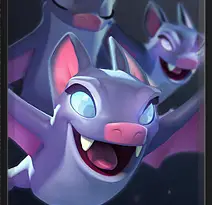
Pingback: Winning Strategies for the Bats Card Challenge - ClashRoyaleMeta
I just stumbled onto this. Just wanted you to know this was very inciteful!! Thanks!
Thanks! Glad to hear it helped. Hopefully it’ll push you to get some more wins in the next draft!